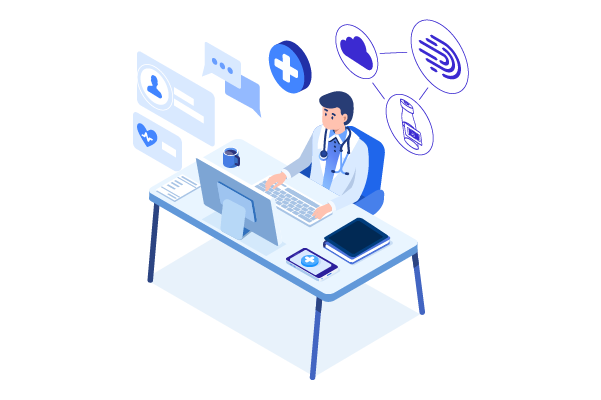Introducing the UnitVisID Alliance
The first open, member-driven Alliance unifying the industry to ensure the interoperability, performance,
and reliability of RFID technology in healthcare to elevate patient safety.
Members
The Alliance is made up of representatives from leading companies in the pharmaceutical ecosystem who are working together to alleviate pain points in healthcare workflows, supporting RFID adoption and
open identification tag data. Check out our current membership.
Benefits
Curious how membership in our Alliance can help your organization solve workflow inefficiencies, accelerate time to market for your products, create better patient outcomes and so much more? Learn about our member types across the pharmaceutical supply chain.
UnitvisID Guideline
UnitVisID is a guideline maximizing the full potential of RFID for medications dispensed in hospital and healthcare organization pharmacies. Our guideline integrates existing industry standards and technological advancements, assuring consistent quality and interoperability of RFID-tagged medications from manufacturing to patient. Learn more about our steps to ensure:
What is the UnitVisID Alliance?
The UnitVisID Alliance is the first open, member-driven Alliance established to unify the healthcare industry to ensure the interoperability, performance, and reliability of RFID technology in healthcare to elevate patient safety.
UnitVisID certified products rely on existing standards like RAIN and GS1, and are tested to ensure:
- Performance — Use of only the best RFID inlay for the size, shape, material, and application environments
- Interoperability — Every medication and its unique attributes are read by all UnitVisID Certified hardware devices
- Reliability — Certified products are independently tested and qualitatively proven in challenging healthcare applications

Why was the UnitVisID Alliance created?
Despite huge investments by hospitals and healthcare organizations into automation solutions, many challenges remain - shortages, recalls, workflow inefficiencies, and lack of interoperability. In recent years a variety of different RFID solutions have come into the healthcare market to track medications, instruments, and supplies without any industry-wide specifications having been established to ensure interoperability, performance, and reliability between them. With industry-wide support of a comprehensive guideline for healthcare, players along the pharmaceutical supply chain can now work together to solve these issues proactively rather than reactively.
